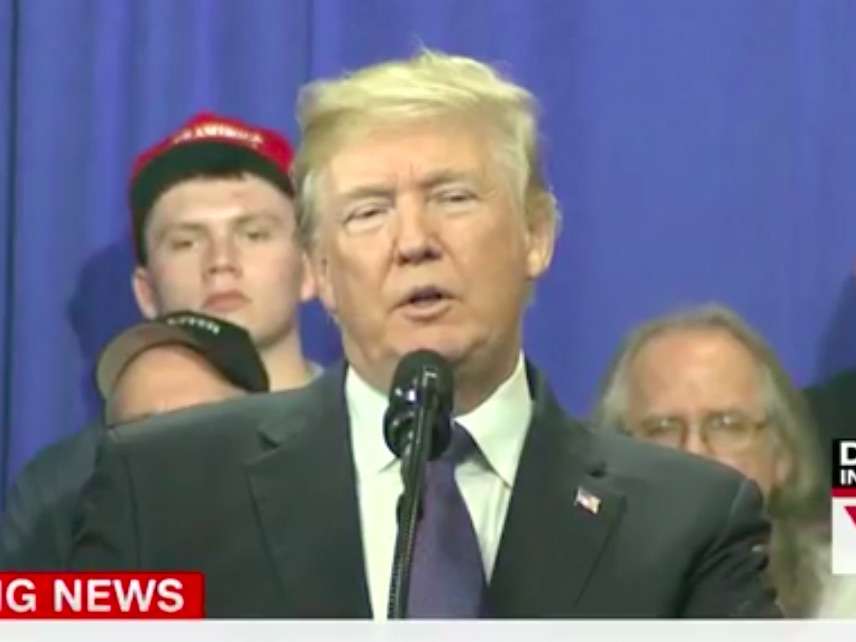No, President Trump, It's Not 'Treasonous' to Be Chill During the State of Union
"You have the other side, even on positive news, really positive news… they were like death, and un-American."

During a speech at a factory in Ohio on Monday, President Trump called Democratic Congressmen "un-American" for failing to cheer enthusiastically during the State of the Union address last week. He even suggested that their behavior was "treasonous."
"You're up there, you've got half the room going totally crazy, wild, they love everything, they want to do something great for our country," said Trump, referring to his Republican supporters in Congress. "And you have the other side, even on positive news, really positive news… they were like death, and un-American."
Someone in the factory audience apparently called out "treasonous," which prompted Trump to respond, "Yeah, I guess, why not." Again, that was Trump casually affirming the idea that his political opponents had committed treason in failing to applaud him.
But treason has a specific definition: it involves levying war against the United States, or giving aid and comfort to its enemies. "Aid and comfort" means actually helping a declared enemy of the United States—by sending them money, leaking sensitive information to them, etc. Merely signaling dissent from, or disapproval of, the current commander-in-chief is not treason; if it was, members of the out-of-power political party would have no real means of challenging the president's agenda. Thankfully, the First Amendment guarantees everybody the right to criticize the government and its chief executive.
Trump's statement about treason echoes his previous comments in support of jailing flag burners and broadening the scope of libel laws. Rhetorically speaking, the president is no friend to free speech—he would clearly like to criminalize all kinds of anti-Trump political expression. Fortunately, Trump has not attempted to actualize his stated preference for censorship, and if he did, the Supreme Court would stop him.
In any case, Trump really shouldn't be too eager to broaden the public's definition of the word treason. Many on the left have accused Trump himself of treason because his campaign allegedly colluded with elements of the Russian government to interfere in the 2016 presidential election. Under the strict definition of treason, this doesn't count, since the U.S. remains formally at peace with Russia. The strict definition is vastly superior to the "yeah, I guess, why not" definition nonchalantly endorsed by Trump in his remarks today, even for the sake of Trump's own political interests.
Trump says the Democrats would rather see him "do badly" than the US do well: "Somebody said 'treasonous'. I mean, yeah, I guess. Why not?" https://t.co/E2AOVJNiGE
— CNN Politics (@CNNPolitics) February 5, 2018


Show Comments (124)